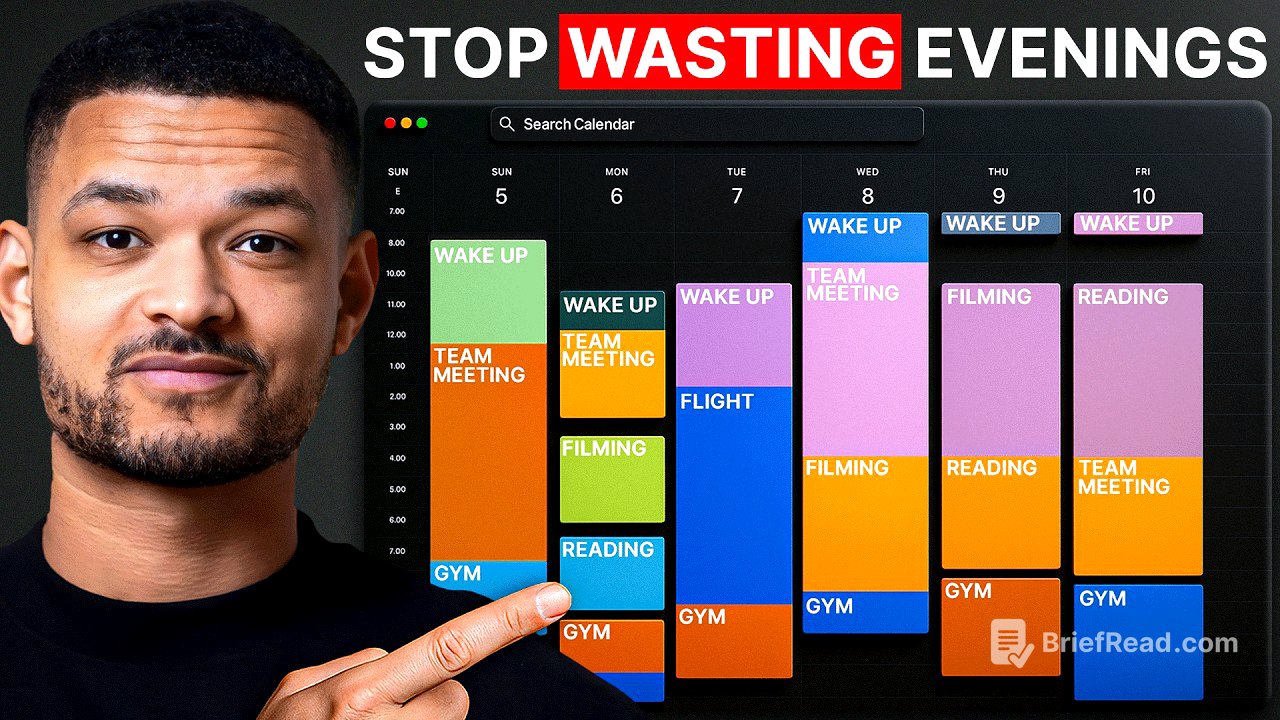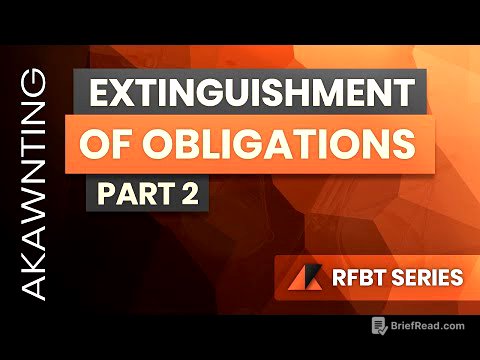TLDR;
This video discusses productivity, focus, and business strategies. It emphasizes the importance of prioritizing tasks by distinguishing between "signal" and "noise," drawing inspiration from Steve Jobs' approach. The video also explores the concept of doing things that don't scale, using examples from successful companies like Airbnb, Facebook, and Stripe. Additionally, it touches on the significance of experimentation, learning from failures, and utilizing data analytics for content creation. The video concludes with a personal reflection on appreciating meaningful relationships.
- Prioritize tasks by distinguishing between "signal" (important tasks) and "noise" (distractions).
- Embrace unscalable actions in the early stages of building a business to gain valuable feedback.
- Experimentation and learning from failures are crucial for innovation and staying ahead of competitors.
- Utilize data analytics to understand audience preferences and improve content creation.
- Appreciate and express gratitude towards meaningful relationships.
Introduction: Signal vs. Noise [0:00]
The author expresses frustration about not learning the concept of "signal versus noise" earlier in their career. This concept explains why some individuals are highly productive while others struggle. Inspired by a conversation with Kevin O'Leary about Steve Jobs, the author realized the importance of distinguishing between essential tasks (signal) and distractions (noise). Steve Jobs aimed for an 80/20 ratio, focusing 80% of his energy on the top three to five critical tasks and minimizing the 20% of noise that could hinder progress.
Implementing Signal vs. Noise [1:40]
The author shares their strategy for implementing the "signal versus noise" concept by organizing tasks into two columns: signal (most important tasks) and noise (tasks to delegate or eliminate). Drawing inspiration from a quote by Johnny Ive about the importance of saying no to phenomenal ideas to maintain focus, the author plans to schedule a daily "signal and noise" session to prioritize tasks. The author encourages viewers to try this method and share their experiences.
Do Things That Don't Scale [4:28]
The author introduces Paul Graham's essay "Do Things That Don't Scale," explaining that it means manually doing things for early customers. They provide examples such as Airbnb founders personally taking professional photos of listings and Mark Zuckerberg manually pitching Facebook to Harvard users. Stripe founders installing the software on their customer's computers. These actions, though unscalable, were crucial for understanding customer needs and achieving initial success. The author emphasizes that focusing on scalability from the beginning can be a critical mistake for founders.
Flight Story Expansion and Simplifying Life [8:35]
The author discusses the expansion of Flight Story into America, with new studios in Boston, Los Angeles, and potentially New York City. They mention their decision to wear the same outfit every day to save time and simplify their life. By calculating the time saved from not choosing outfits and packing, the author suggests that simplifying one's wardrobe can be a valuable optimization for those who don't derive significant value from fashion.
Lessons from the Creativity Festival in Cannes [9:58]
The author shares three lessons from the Creativity Festival in Cannes: the importance of failure and experimentation, the significance of pressing a single button (referring to utilizing YouTube analytics), and the "value for strangers" framework. They explain that attending the festival provides opportunities to meet fans, make business contacts, and generate revenue for Flight Story. The author emphasizes that the money earned is reinvested into the business to build a multi-billion dollar company.
The Importance of Experimentation and Failure [11:33]
The author highlights the importance of experimentation and embracing failure, referencing Jeff Bezos's statement about Amazon being the best place to fail. They explain that their company has a dedicated failure and experimentation team whose KPI is the number of experiments conducted, regardless of the outcome. The author emphasizes that every breakthrough comes at the expense of multiple failures and that failing quicker than competitors leads to knowledge and power.
Reasoning from First Principles and YouTube Analytics [13:24]
The author discusses the importance of reasoning from first principles, starting with questions rather than conclusions. They critique the common approach of starting with a trend (e.g., starting a podcast) and then scrambling to figure out the content and audience. The author emphasizes the value of YouTube analytics, explaining how they spend hours analyzing data to understand audience preferences and improve content.
Value for Strangers and the Feedback Loop [16:13]
The author advises focusing on providing value for strangers in every post and emphasizes the importance of the feedback loop: produce, publish, pay attention, and repeat. They stress that every post should be valuable to the audience, not just self-promotional. The author shares that they spend significant time analyzing analytics to understand what resonates with their audience and improve their content.
Gratitude and Personal Reflection on Pablo [20:39]
The author shares a personal reflection on their dog, Pablo, who is very sick. They express their love and appreciation for Pablo, who has been a constant companion for the past 10 years. The author reflects on how Pablo has helped them realize that life can be simple and find joy in simple things. They express the difficulty of facing the prospect of losing Pablo and the importance of expressing gratitude to those who are meaningful in our lives.








